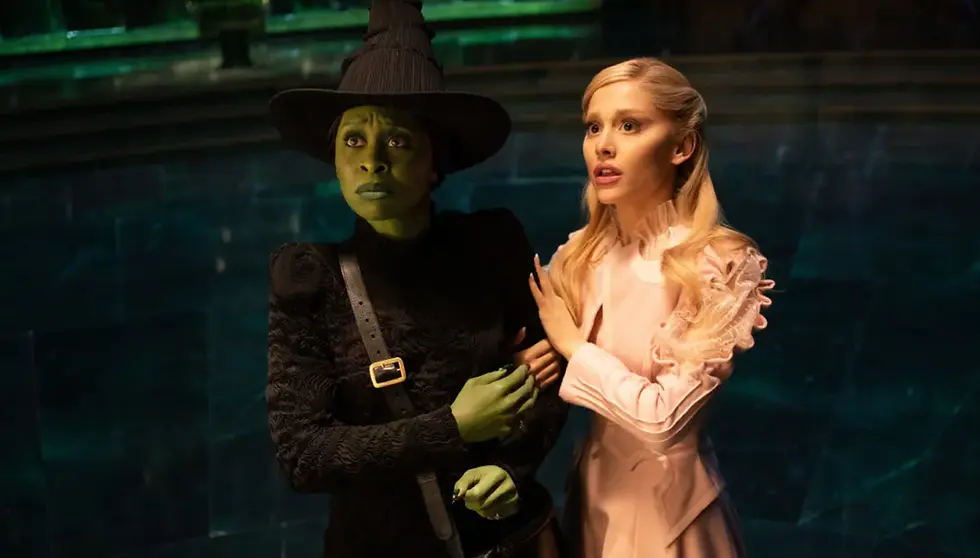For Black Boys Who Have Considered Suicide When The Hue Gets Too Heavy
- comaweng
- Mar 30, 2024
- 4 min read

For Black Boys Who Have Considered Suicide When The Hue Gets Too Heavy is incredibly broad – six young men, often with diametrically opposed views, are in conversation. None, as far as I recall, are called by name, although the show’s programme insists the characters have names, even if some of them sound, frankly, like Dulux paint colours, like ‘Obsidian’ and ‘Midnight’. Onyx (Tobi King Bakare) thinks there is no point in black people participating in higher education (or, to put it another way, getting a degree) – because they will pay far too much money to be taught by white professors and eventually become so assimilated into ‘white’ society that they will even get a job at a white majority corporation or other, and possibly even marry a white woman, leaving behind (as it were) his black friends from pre-university days.
But at some point, something will go wrong in the big plc, such as corporate fraud that has nothing to do with our black boy way, way down the chain of command. But it’s the black people that will be blamed first, and fired first. And they won’t be in the financial pages of the national newspapers either, just unceremoniously dumped. The N-word is liberally used during this line of argument, and in the counterargument, Obsidian (Mohammed Mansaray) refuses to be known by that term: “I don’t care if you spell it when an ‘a’ or an ‘er’, and I don’t care who uses it. I am not a [N-word]…”
There’s barely a topic untouched in this briskly paced production, though it is careful not to skirt over issues under discussion. Occasionally someone will think they’ve already said too much, only to find the other ‘boys’ are interested and would like to know more. Love and relationships, perhaps inevitably, feature heavily, particularly at the start of the second half, with the lads doing that thing where they (try to) demonstrate how well they know how to charm a potential lover, all of which have much of the audience in cahoots.
Microaggressions start in school – I’ve never, to the best of my knowledge, believed in the old adage ‘school days are the best days’. In Jet’s (Fela Lufadeju) experience, kiss chases always involved the white boys only, with “all us dark skin boys sat alone in the middle of the playground”. I liked the pushback again stop-and-search police tactics: Onyx points out that doctors don’t go around searching for patients, and firefighters don’t drive around looking for fires, so why are the police looking for people to arrest?
Pitch (Shakeel Haakim) points out the pretentiousness of those who talk in a “broken English/Jamaican patois, despite being from Ghana and Nigeria”. Of course, to be black in Britain today can mean almost anything – Pitch takes advice from his pastor, the only one of the six lads who does, because he’s the only one who still attends church. It is reasonable, I think, to assume that some of the others just weren’t raised in spiritual families. Still, a contemporary white play can (and often does) leave God out of proceedings altogether. Not so here. “And God said, ‘Love your enemy’, and I obeyed and loved myself”, the boys conclude. The overriding message is that suicidal thoughts are only temporary: “If you can stand to wait, the moment will pass”.
I’m not black, of course, but the thing about wanting to commit suicide as a young man is relatable. I’ve been there, and it’s a deeply unpleasant and all-pervasive feeling. It happened after I spent a year as part of a ‘sandwich course’ working full-time. It was a business management course, and the expectation was that students would work on a twelve-month ‘student placement’, such that the course was four years instead of three. You come out the other end with a degree and a year’s work experience. When I returned to campus to do my final year, I hated the drudgery of lectures, seminars and coursework, the abstractness of theoretical models with little if any practical real world application, all that cramming for exams. To pull out of the course would have meant admitting failure. The thought of being there on that wretched course for any longer than necessary was enough to make me pull myself together to pass my finals first time, and I graduated in absentia. At the time I told myself skipping the graduation ceremony was because I was working all the hours I could to reduce my substantial debts, but I suppose it was really because I couldn’t face having anything to do with that course again. The university popped a degree certificate in the post – you could trust the Royal Mail to some extent back then, and if there is an image of me dressed in a gown and mortarboard, it’s AI-generated.
For years after, I said I wouldn’t wish suicidal thoughts on my worst enemy. I’ve made more enemies since then (it goes with the territory of being known as a ‘theatre critic’ – the latest haters are a bunch of Michael Jackson fans who are upset I didn’t give MJ The Musical six stars (out of five!)). I don’t mind admitting that these days I consider murder rather than suicide, though I should hasten to add that if I’ve had such thoughts often enough that if I were to follow through on them, I would have done so by now. Anyway, like these black boys, I’m still here.




Comments